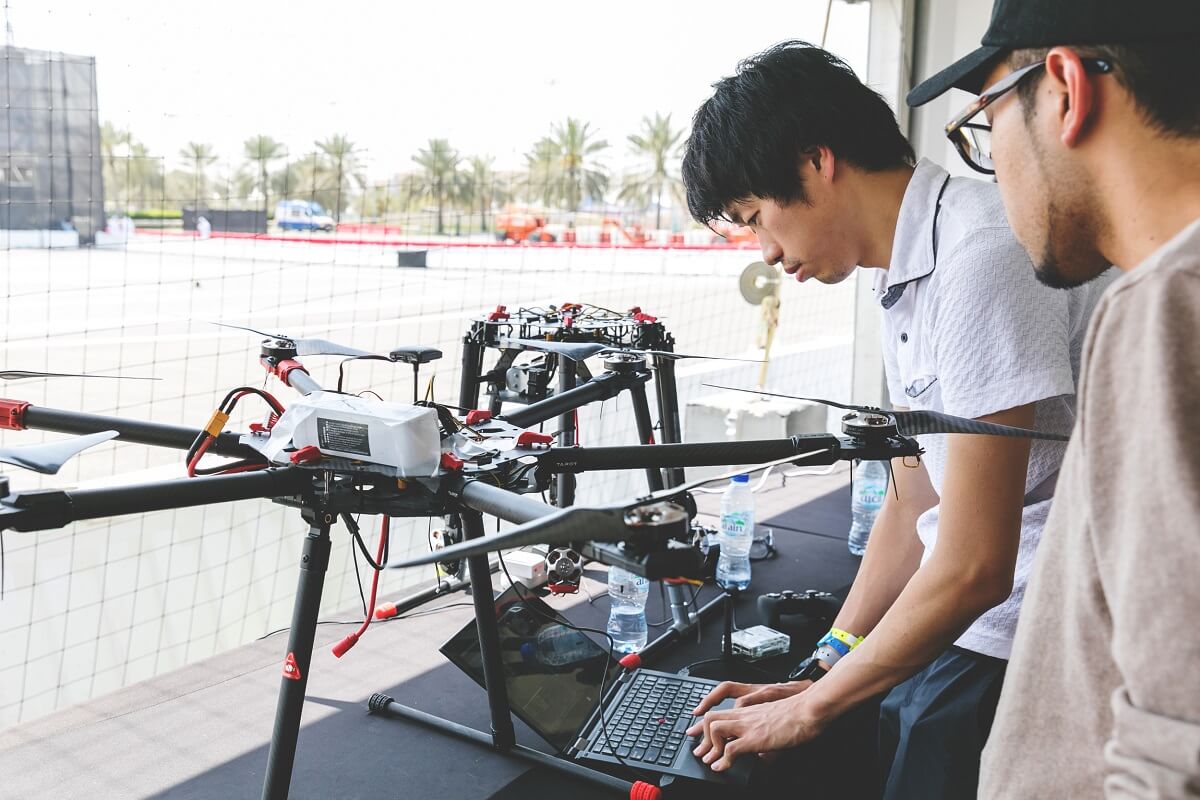
The dust may have settled in the Mohamed Bin Zayed International Robotics Challenge (MBZIRC) arena but the ingenuity and ambition demonstrated by the teams competing continues. Efforts are now being directed towards further research and development discussions as insights related to the 2020 challenges are prepared for publication in an upcoming special edition of the Journal of Field Robotics.
The Journal of Field Robotics special issue MBZIRC 2020 – Challenges in Autonomous Field Robotics – will be published in early 2021 and researchers involved in MBZIRC 2020 are encouraged to submit their work. Topics of interest include robotics in unstructured, dynamic environments, sensing and perception, machine learning, mechanical design, computer architectures, communication, planning, learning, and control.
“Robotics has the potential to have an impact that is as transformative as the Internet, with robotics technology poised to fuel a broad range of next-generation products and applications in a diverse array of fields,” explained Dr. Lakmal Seneviratne, Director of the Khalifa University Center for Autonomous Robotic Systems (KUCARS). “These include robot applications in disaster response, manufacturing, construction, healthcare and household chores. In the past few decades, robotic competitions have been a catalyst for accelerating technological advancements in robotics and autonomous systems.”
MBZIRC is a biennial robotics competition motivated by the technological challenges facing the next generation of robotics. Similar to other major competitions, MBZIRC 2020 provided an environment to foster innovation and technical excellence, while encouraging entertaining performance.
Robots and drones indeed have a bright future across multiple fields. They may be useful and entertaining to the hobbyist, but the recent MBZIRC hosted in Abu Dhabi proved their incredible potential in a broad range of diverse applications. But for autonomous robots and drones to be useful in tasks such as disaster zones or as first responders, they need to be able to move fast, far and without human oversight, often in environments where they can’t rely on external guidance systems like GPS.
All the MBZIRC 2020 challenges were developed to push the technological and application boundaries in robotics, focusing on fast, autonomous navigation in complex environments to complete a task. While remote controlled robots and drones would face enough challenge in this arena, the most important part of MBZIRC is the autonomous completion of tasks. This autonomy is one of the biggest challenges facing robotics development.
“The enabling technologies for next generation robotic applications include robots working more autonomously in dynamic, unstructured environments, while collaborating and interacting with other robots and humans,” explained Dr. Seneviratne. “MBZIRC 2020 focused on some of these enabling technologies, by providing a demanding set of benchmark robotics challenges, and attracted some of the best international teams.”
While solving real world problems, MBZIRC encourages innovation in robotics, AI, and materials; all major components that must be addressed as robots and drones can become increasingly potent tools to improve safety and security. Robotics competitions are the ultimate catalyst to accelerating development as teams compete to push the boundaries.
The challenges and innovations required to compete have attracted the attention of the prestigious Journal of Field Robotics, highlighting the impact MBZIRC has on inspiring solutions to some of the most pressing challenges in robotics.
Jade Sterling
Science Writer
15 October 2020